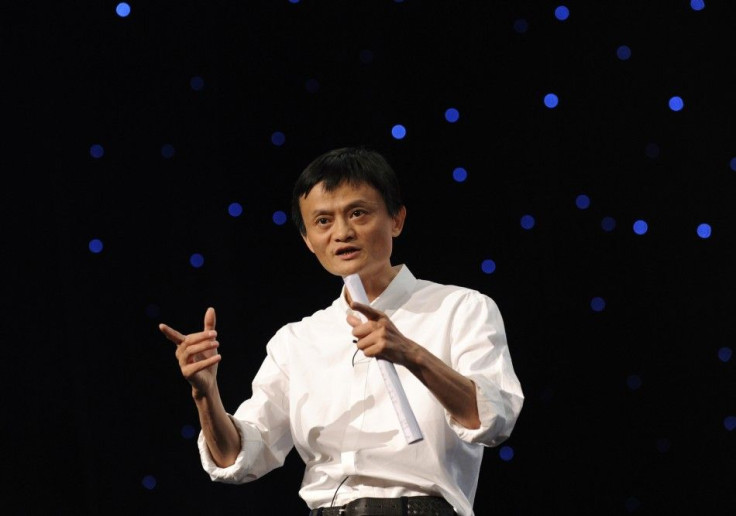Chinese Companies Struggling To Gain Foothold In Global Market

China has no shortage of huge and profitable companies, but in terms of global brands, the country has exactly zero. Since China’s previous competitive edge of being the cheapest is no longer viable, Chinese companies now face the challenge of how to build globally recognized brands, in order to sustain growth, but it may be years before any of them achieve true global recognition.
There were 13 Chinese companies on this year’s Brandz “Top 100 Most Valuable Global Brands,” released last month by the market research agency Millward Brown Optimor, yet it may be a stretch to call these Chinese brands global, as most worldwide consumers fail to recognize their names, wrote David Roman, the CMO of Lenovo Group Limited (HKG:0992), in a guest post for Forbes.
“Because the majority of their business is conducted within China, they have yet to gain recognition with consumers elsewhere; they are not yet truly global,” Roman wrote. “The fact is that many Chinese and other emerging market companies have phenomenal business success, but they have not yet leveraged that success into a high brand value outside their home markets.”
Roman gave Lenovo as an example. The world’s second-largest PC maker, even after its high-profile acquisition of the PC division of International Business Machines Corp. (NYSE:IBM), Lenovo is barely known outside China. Similarly, China Mobile Ltd. (NYSE:CHL), Industrial and Commercial Bank of China (HKG:1398) and SINA Corp (Nasdaq:SINA), are all vastly successful companies that an average non-Chinese consumer probably has not heard of.
Even a company like Alibaba, with its highly anticipated, possibly American IPO, may be known to business-savvy Americans, but the company’s products are still not at all familiar to consumers. One reason for China’s lack of brand power may be its large companies’ B2B focus, according to the Harvard Business Review. Many of the Chinese companies in the Fortune Global 500 sell to businesses, and it is much harder for B2B firms to build brand recognition compared to B2C companies.
But another reason may be that it’s simply not time yet. Most of today’s global brands, with the exception of popular technology firms like Apple Inc. (Nasdaq:AAPL) and Google Inc. (Nasdaq:GOOG), got their start in the West and it took many years for them to achieve global prominence. Brands from Japan and Korea, largely technology firms, also took decades to rise, Roman wrote.
Chinese firms may need to do it sooner, however, if they wish to continue growing.
"Their [companies'] previous competitive edge -- being the cheapest -- is increasingly impossible to sustain," said Jan-Benedict Steenkamp, professor of marketing at UNC Kenan-Flagler Business School and co-author of the book "Brand Breakout: How Emerging Market Brands Will Go Global," according to the CNBC. "They need to start to add value to the product. This is impossible without branding the product."
CEOs of Chinese firms recognize the urgency as well. In a recent survey of Chinese executives, some 80 percent said globalization is a strategic priority and half said they plan to be multinational players within a decade, according to Roman. The challenge now facing Chinese business leaders is how to create billion-dollar brands that people can relate to -- and it won’t be an easy challenge.
For one, Chinese companies seeking to build global brands must overcome association with inferior quality.
"Chinese companies face a worldwide stigma that their products are low quality. To achieve international brand loyalty, they must make high quality products that consumers will buy again and again," said Stuart Strother, professor of economics at Azusa Pacific University, according to CNBC.
On top of that, what made large Chinese companies successful at home may be very different from what it takes to take the western market. Chinese executives must try to “first understand globalization,” according to Thomas Chen, the managing director for Interbrand Shanghai, and “commit to organizational change.”
But in China’s favor, its previous edge of being the world’s factory can still help its companies become global brands. The sophisticated manufacturing infrastructure in China provides a solid foundation for Chinese brands to expand to other countries, said Peking Tan, greater China R&D director for Millward Brown, a brand consultancy group. The advantage should allow firms to innovate and create products that would be difficult to make elsewhere, according to CNBC.
"China's manufacturing infrastructure now goes beyond good machinery," said Steenkamp. "It has built entire manufacturing networks, including specialized suppliers of components and related services. No other emerging market can match this."
Some Chinese companies are already following in the footsteps of companies from its Asian neighbors -- brands like Sony Corporation (NYSE:SNE), Honda Motor Co Ltd (NYSE:HMC), LG and Hyundai Motor Co (KRX:005380), in a slow-but-steady-growth strategy that Steenkamp called the “Asian Tortoise Method.” For example, Haier, which makes home appliances, has slowly climbed up the ladder since entering the Western market in 1984, and is now the world’s largest white goods manufacturer. Other companies adopt an alternative model by building inroads in a specialized business area before penetrating Western consumer markets, according to CNBC.
No matter which strategy Chinese companies adopt, it will likely take a few more years for them to achieve the kind of prominence that true global brands have.
© Copyright IBTimes 2024. All rights reserved.











